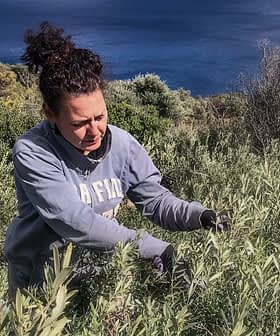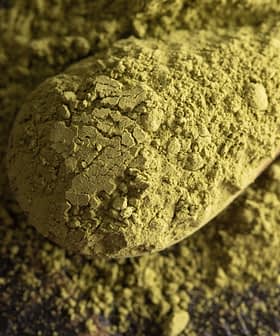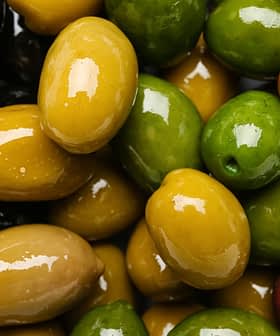Auburn University Raising Money for Olive Oil and Alzheimer's Research
Researchers at Auburn University have found that a compound in extra virgin olive oil might be valuable for helping prevent or slow the progression of Alzheimer’s disease.
 Photo courtesy of Magnus Manske
Photo courtesy of Magnus ManskeAuburn University is hosting Tiger Giving Day on February 21 to raise funds for research on oleocanthal in extra virgin olive oil as a potential treatment for Alzheimer’s disease, with a focus on preventing or reversing the progression of the disorder. The research conducted by Amal Kaddoumi and her team has shown promising results in reducing behaviors related to Alzheimer’s in mice, leading to hope for potential clinical trials and a new treatment for the disease.
On February 21, Auburn University will host Tiger Giving Day, a 24-hour effort to raise funds for the institution.
Part of the revenue will be designated for promising research that shows oleocanthal, a naturally occurring compound in extra virgin olive oil, can help Alzheimer’s patients.
I’d like to invite Olive Oil Times’ readers to join me in supporting this project by giving to it and by sharing the information through social media and email.
In an interview with Olive Oil Times, Amal Kaddoumi related the staggering prevalence of the disorder and touches on what her team is doing in the fight against it.
“According to the Alzheimer’s Association, 5.7 million Americans are living with Alzheimer’s, with the number projected to double by 2050,” she said in a written statement. “Currently one in 10 people over the age of 65 have Alzheimer’s dementia. If you look around your office, your home or your neighborhood and do the math, it quickly becomes a worrisome number.”
See Also:Alzheimer’s and Olive Oil“However, we at Auburn University would like to make it a thing of the past, using something that you probably have in your kitchen right now,” she added. “My team and I are working to understand how oleocanthal in extra virgin olive oil may be able to prevent or even reverse the progression of Alzheimer’s disease. This compound, when given separately or as part of the oil, has already shown a lot of promise in our previous research, and we would like to see if it works in people.”
“On February 21, we will have one 24-hour day to raise money so more people can try this therapy out in our clinical trial,” she continued. “It’s part of a larger Auburn University effort called ‘Tiger Giving Day,’ and we are excited to be a part of it! Since the time window is so short, everything will be done online. We are getting things ready and setting up a special website for the big day.”
“I’d like to invite Olive Oil Times’ readers to join me in supporting this project by giving to it and by sharing the information through social media and email,” she added. “If you have any questions, please don’t hesitate to contact me.”
Kaddoumi has good reason to be hopeful about the research. In November of 2018, she reported on her multidisciplinary team’s investigation of oleocanthal as a novel treatment for Alzheimer’s disease. The compound is a strong antioxidant and a non-steroidal anti-inflammatory agent.
Her studies reveal oleocanthal-rich extra virgin olive oil is highly effective in reducing behaviors related to Alzheimer’s.
“We are very excited about our findings with oleocanthal, which demonstrated several positive effects against Alzheimer’s in mice that express the disease, such as enhancing the blood-brain barrier function and reducing the formation of amyloid-beta plaques and neuroinflammation, all of which are hallmarks of Alzheimer’s,” Kaddoumi said in a press release.
Kaddoumi added that the results suggest oleocanthal could be beneficial for protecting memory and learning ability in patients with the disorder. Her team is hoping their work leads to clinical trials and results in a new treatment for Alzheimer’s and related conditions.









